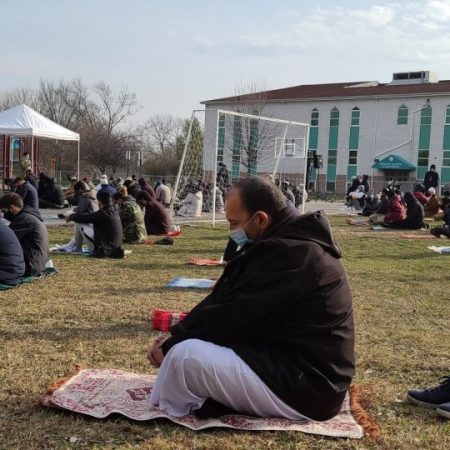The Ramadan Soaps
By Sumayyah Meehan, Muslim Media News Service (MMNS) Middle East Correspondent
The Holy Month of Ramadan heralds in a veritable wave of traditions, which are quite often tied to heritage and culture. This can be in the clothes worn during the month, or the food that graces the Iftar table. While most traditions in Ramadan are religious in nature, others are not.
Even before the crescent moon of Ramadan was sighted in Saudi Arabia, advertising placards for the newest Arabic soap operas began sprouting up in Kuwait, Saudi Arabia, Egypt, Lebanon and several other Middle Eastern countries. For many Muslim viewers, it simply would not be Ramadan without having a salacious soap opera to watch during and after the daily fast is broken. And for corporations who payroll the soap operas, Ramadan is a golden opportunity to generate some much needed revenue.
Make no mistake, the Arabic soap operas have nothing to do with the principles of Islam, such as prayer or fasting, but rather focus on the evils of society that are perpetrated by misguided souls. In one recent drama that aired in Kuwait this past week, a wealthy businessman chases his single secretary at work all day professing his love for her and asking for her hand in marriage. Meanwhile, his wife is at home tending to the housework and stumbles upon a diamond bracelet he has purchased for his secretary. The drama switches to another married couple that seems happy enough. However, a male suitor promises to win the heart of the wife and if she won’t agree he vows to destroy her life, which he does in the next scene. He places a call to her husband who in turn throws her out of the home, to her despair.
The prevalence of Arabic soap operas during Ramadan have had a detrimental effect on worship. Increased acts of worship and welcoming guests in the nights or visiting the homes of others take a backseat to catching the next installment of the serial. Last year alone it was estimated that at least 64 new soap operas appeared on Saudi television, around the clock during Ramadan. The soaps were stacked upon the hour so that viewers could tune in at any time of the day. Coveted ad space was stuck in between each plot as it developed–with commercials hawking everything from soap to cooking oil. In fact, it is the ad space that fuels the soaps, as viewers view each commercial as they wait for the plot to thicken.
Before, most Muslims in the Middle East would gather in the nights of Ramadan to worship or to discuss matters related to the deen. After all, the region is the cradle of Islam and the birthplace of the Prophet Muhammad (s). However, these days many Muslims gather to watch soap operas together, gossip about what happened in the current installment or speculate what will happen in the one to come.
It is encouraging to note that not all Middle Eastern countries streamline a barrage of juicy soap operas during the Holy Month. In Turkey, the television programming is geared towards Islamic history, living the deen of Islam and Q&A shows where callers can call in to have their questions about Islam answered live on air by a reputable sheikh. Locally produced and aired music channels in Turkey also pull their programming during Ramadan in favor of airing Islamic nasheeds.
Storytelling is an age-old tradition. However, Ramadan is a golden gift that should be seized by every Muslim that is willing and able to receive the blessings that come with it. Being glued to the TV and rapturously eating up all the human folly portrayed there definitely tarnishes the reality of what Ramadan is all about.
11-37














2009
1,528 views
views
0
comments